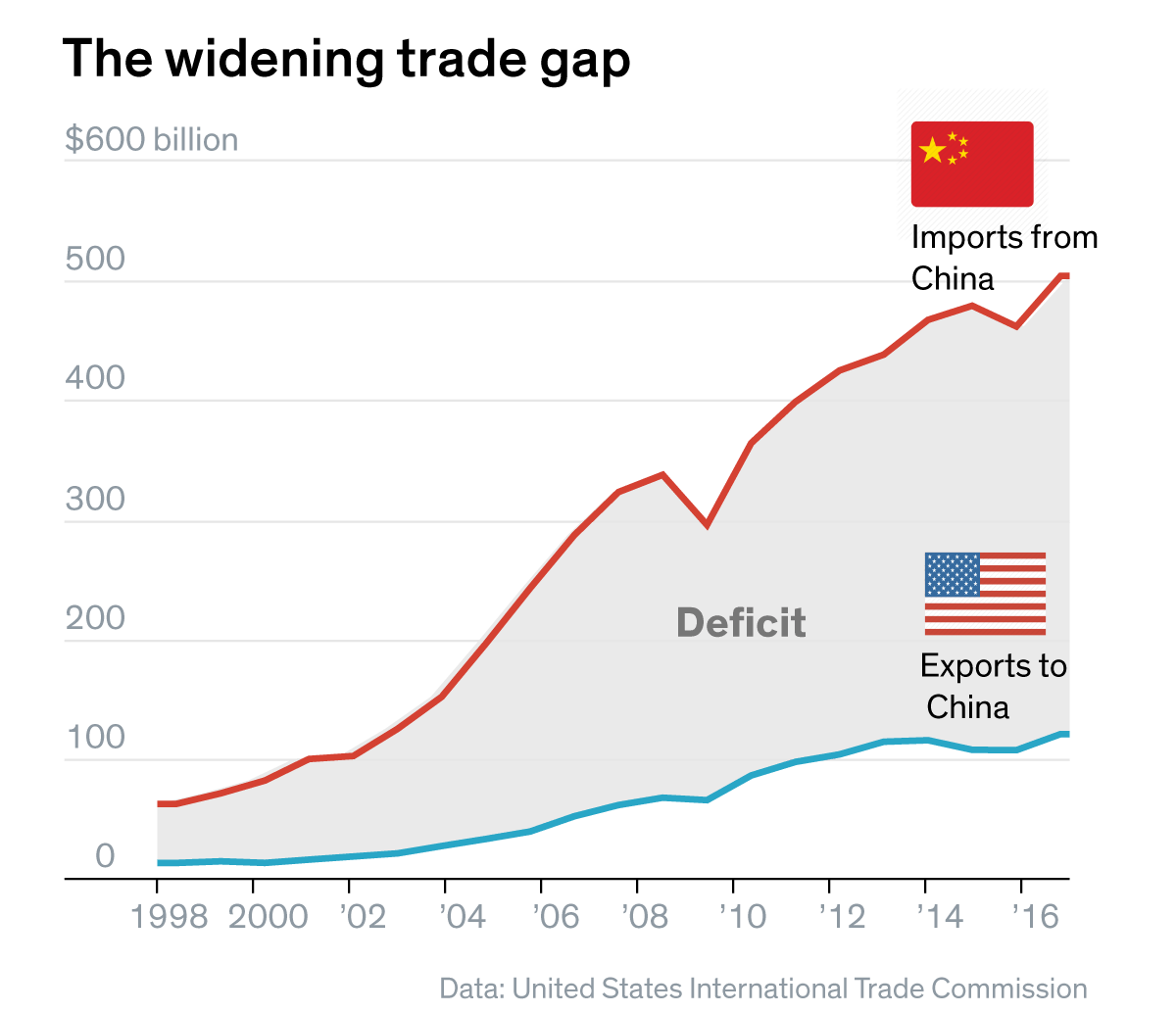China And Canada: Ambassador's Statement On A Potential Trade Agreement

Table of Contents
Key Points from the Ambassador's Statement
The Ambassador's remarks regarding a potential China-Canada trade agreement focused on several key areas, offering a mix of optimism and cautious pragmatism. These statements provide valuable insight into the current state of trade negotiations and the potential path forward for enhanced economic cooperation between the two countries. The keywords used throughout the statement highlighted the importance of bilateral trade opportunities.
-
Focus on Specific Sectors: The Ambassador specifically mentioned the potential for increased trade in agriculture, technology, and natural resources. These sectors represent significant export opportunities for Canada and import needs for China. The statement emphasized the potential for mutually beneficial collaboration in these areas.
-
Optimistic Outlook, Cautious Approach: While expressing optimism about the potential for a mutually beneficial trade deal, the Ambassador also acknowledged the challenges that need to be addressed. This balanced approach suggests a realistic understanding of the complexities involved in negotiating a comprehensive agreement.
-
Next Steps and Timelines: Although no concrete timelines were provided, the Ambassador hinted at the need for further dialogue and engagement between both governments. This suggests that the process of negotiating a China-Canada trade agreement is likely to be a lengthy one, requiring careful consideration of various factors.
Potential Benefits of a China-Canada Trade Agreement
A comprehensive China-Canada trade agreement holds significant potential economic benefits for both nations. The increased market access and investment opportunities could lead to substantial growth and diversification of trade partners for both countries. The potential boost in GDP growth alone warrants close examination of the potential of a China-Canada trade deal.
-
Increased Market Access: Canadian businesses would gain significantly improved access to the vast Chinese consumer market, boosting exports of goods and services across various sectors. This access would be particularly beneficial for Canadian agricultural producers, technology companies, and resource extraction industries.
-
Investment Growth: A trade agreement could attract substantial Chinese investment in Canada, creating jobs and stimulating economic activity. This increased investment could support innovation, infrastructure development, and the growth of Canadian businesses.
-
GDP Growth and Economic Diversification: Increased exports to China, coupled with increased foreign investment, would contribute significantly to Canada's GDP growth and help to diversify its trading partners, reducing reliance on any single market. The overall economic strengthening of Canada could be a significant result of a robust trade agreement.
Challenges and Obstacles to a China-Canada Trade Agreement
Despite the potential benefits, several challenges and obstacles stand in the way of a successful China-Canada trade agreement. These issues need to be addressed effectively to pave the way for a mutually beneficial partnership.
-
Political Tensions: Ongoing political tensions between the two countries pose a significant hurdle. These tensions have historically impacted bilateral trade and require careful diplomatic management to overcome.
-
Trade Barriers and Tariffs: Existing trade barriers and tariffs impose significant costs on businesses, hindering the flow of goods and services. Addressing these non-tariff barriers is crucial for achieving significant gains from a trade agreement.
-
Intellectual Property Rights and Market Access: Concerns surrounding intellectual property rights protection and equitable market access for Canadian businesses in China remain key obstacles to a successful agreement. Guarantees of fair treatment are essential for Canadian businesses to fully participate in the Chinese market.
-
Regulatory Differences: Navigating the different regulatory environments and standards in both countries presents another challenge. Finding mutually acceptable solutions to these differences is key to ensure a smooth and efficient flow of trade.
Addressing Concerns Regarding Human Rights and National Security
The potential impact of human rights concerns and national security considerations on the trade negotiations cannot be ignored. Canada must balance its economic interests with its values.
-
Human Rights Considerations: Canada's commitment to human rights will inevitably influence its approach to trade negotiations with China. Mechanisms to ensure alignment with Canadian values will likely be integrated into the agreement.
-
National Security Concerns: Canada will need to address national security concerns related to technology transfer and sensitive information sharing in any trade agreement with China. Robust safeguards will be necessary to protect national interests.
-
Ethical Sourcing and Responsible Business Practices: Implementing mechanisms to ensure ethical sourcing and responsible business practices will be crucial for building a sustainable and equitable trade relationship. This includes transparency and accountability measures to avoid exploitation.
Conclusion
The Ambassador's statement offers a glimpse into the possibilities and complexities of a potential China-Canada trade agreement. While significant benefits exist for both nations, overcoming political challenges and addressing concerns about human rights and national security are crucial for achieving a mutually beneficial and sustainable trade relationship. A successful China-Canada trade agreement requires careful negotiation, balancing economic goals with ethical considerations.
Call to Action: Stay informed about the developments in China-Canada trade relations. Further analysis of the Ambassador's statement and ongoing negotiations is needed to fully understand the potential impact of a future China-Canada trade agreement. Follow [link to relevant news source/website] for updates on this crucial aspect of Canada-China relations, including any developments regarding the potential China-Canada trade agreement and related bilateral trade issues.

Featured Posts
-
 Angel Reeses Sharp Response To Caitlin Clark Question
May 17, 2025
Angel Reeses Sharp Response To Caitlin Clark Question
May 17, 2025 -
 Mariners Vs Tigers Series Injured List Update March 31 April 2
May 17, 2025
Mariners Vs Tigers Series Injured List Update March 31 April 2
May 17, 2025 -
 Angel Reese Supports Brother Touching Mothers Day Message During Ncaa Game
May 17, 2025
Angel Reese Supports Brother Touching Mothers Day Message During Ncaa Game
May 17, 2025 -
 14 6 Billion Deficit How Tariffs Impact Ontarios Finances
May 17, 2025
14 6 Billion Deficit How Tariffs Impact Ontarios Finances
May 17, 2025 -
 Blue Origins Rocket Launch Aborted A Subsystem Malfunction
May 17, 2025
Blue Origins Rocket Launch Aborted A Subsystem Malfunction
May 17, 2025
Latest Posts
-
 El Desempeno De David Del Valle Uribe Representando A Reynosa En La Olimpiada Nacional
May 17, 2025
El Desempeno De David Del Valle Uribe Representando A Reynosa En La Olimpiada Nacional
May 17, 2025 -
 Reynosa En La Olimpiada Nacional La Participacion De David Del Valle Uribe
May 17, 2025
Reynosa En La Olimpiada Nacional La Participacion De David Del Valle Uribe
May 17, 2025 -
 David Del Valle Uribe El Representante De Reynosa En La Olimpiada Nacional
May 17, 2025
David Del Valle Uribe El Representante De Reynosa En La Olimpiada Nacional
May 17, 2025 -
 David Del Valle Uribe Representando A Reynosa En La Olimpiada Nacional
May 17, 2025
David Del Valle Uribe Representando A Reynosa En La Olimpiada Nacional
May 17, 2025 -
 Veteran Springfield Councilman Appointed To Missouri Education Board
May 17, 2025
Veteran Springfield Councilman Appointed To Missouri Education Board
May 17, 2025
